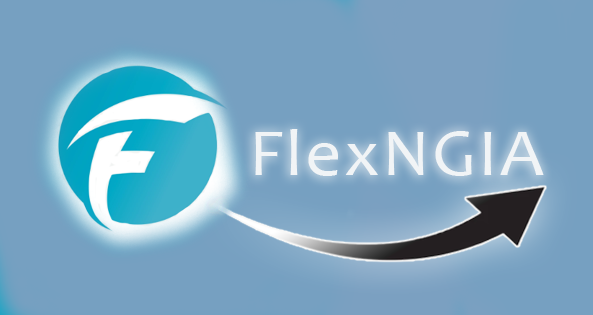
2nd IFIP/IEEE International workshop on
Fully-Flexible Internet Architectures and Protocols
for the Next-Generation Tactile Internet (FlexNGIA 2022)
25 or 29 April, 2022
Organizing Committee
General Co-Chairs
Hesham Elbakoury, Innovax Technologies, USA
Håkon Lønsethagen, Telenor, Norway
Noura Limam, University of Waterloo, Canada
TPC Co-Chairs
Thomas Zinner, Norwegian University of Science and Technology, Norway
Mohamed Faten Zhani, ETS Montreal, Canada
Nashid Shahriar, University of Regina, Canada
Technical Program Committee
Please check the FlexNGIA Team Page
Call For Papers
The rise of edge, cloud and in-network computing and the proliferation of Artificial Intelligence (AI) solutions in networking are promoting the development of innovative applications like virtual/augmented reality, telepresence, autonomous systems, remotely controlled robotics and tactile applications, promising to revolutionize health-care, transportation, industry, agriculture, society and culture. To deploy such applications and to comply with their requirements, there is a need for new Internet paradigms including a Tactile Internet that combines ultra low latency with extremely high availability, reliability and security. This has been the focus of both ITU and IETF/IRTF related initiatives for the past few years.
Today’s Internet falls short when it comes to providing such requirements due to Several design and implementation limitations. To overcome these it is essential to rethink the current Internet and devise new architectures and protocols by efficiently harnessing recent technological advances in terms of virtualization, Network softwarization, NFV/SDN, and Data plane programmability, even when they break the tenets of the current Internet. This vision is embodied in the FlexNGIA Architecture (https://www.flexngia.net)that has the potential to enable novel network services and management schemes adapted to the requirements of future Internet applications.
Topics of Interest
The topics addressed in this workshop include, but are not limited to:
Analysis of the characteristics and requirements of future network applications.
Gap analysis highlighting the limitations of the traditional Internet architecture and protocols and their inability to cater to future applications’ requirements.
Design and evaluation of new architectural paradigms and communication protocols as well as network management schemes based on AI/ML and distributed decision making .
Use-cases and specific applications and potential mechanisms, protocols and schemes to ensure the performance and reliability required by future applications including the move to Industry 5.0 and 6G networks.
Solutions to further develop the FlexNGIA towards a full-fledged architecture by addressing key research challenges including service function chaining, functional decomposition, alternative Network/Transport protocols, resource management, signaling, design of high-performance virtual network functions and services, high-precision monitoring, measurements and in-network telemetry, pricing and economics, Security and privacy (please check FlexNGIA Research Challenges)
Paper Submission
Authors are invited to submit original contributions. Submitted manuscripts should use IEEE 2-column conference style and are limited to 6 pages (including references).
Submission link will be available here soon!
Important Dates
Paper submission deadline: January 8, 2022
Acceptance notification: February 18, 2022
Camera-ready submission: March 5, 2022







